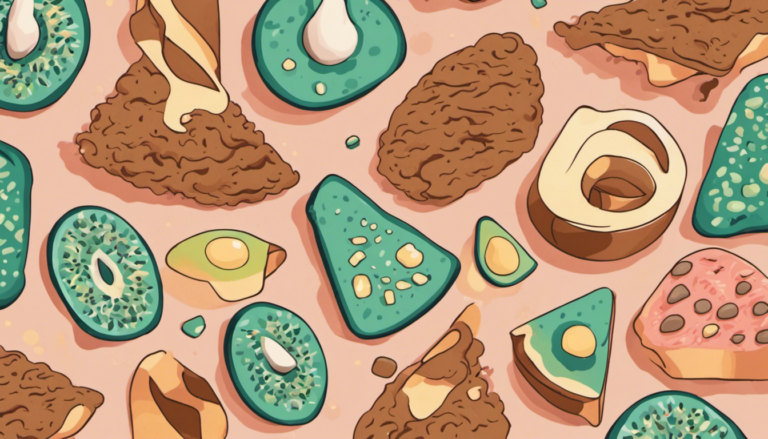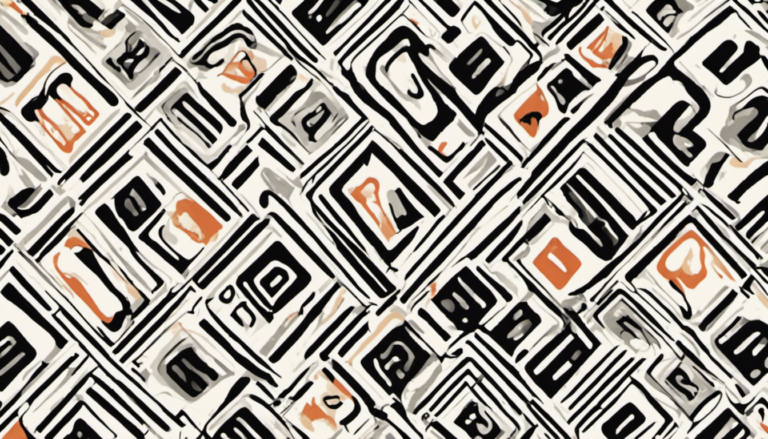Immediate Actions for High Blood Pressure
Understanding and Managing High Blood Pressure
I. Introduction
A. Definition of High Blood Pressure
High blood pressure, also known as hypertension, is a medical condition where the force of blood against the artery walls is consistently too high. This condition often has no visible symptoms but can lead to severe complications if left untreated.
There are two types of high blood pressure: primary (essential) hypertension, which has no identifiable cause and tends to develop gradually over time, and secondary hypertension, which is caused by an underlying condition and tends to appear suddenly.
Understanding high blood pressure is the first step towards managing it effectively and reducing its potential health risks.
B. Brief Overview of the Prevalence of High Blood Pressure
High blood pressure is a common health issue worldwide. According to the World Health Organization, around 1.13 billion people globally have hypertension, most living in low and middle-income countries.
In the United States, nearly half of adults have high blood pressure, many without even knowing it. This is because hypertension often has no warning signs or symptoms, earning it the nickname “the silent killer”.
Given its prevalence and potential health risks, it’s crucial to understand the causes, symptoms, and management strategies for high blood pressure.
II. Understanding High Blood Pressure
A. Causes of High Blood Pressure
Several factors can contribute to the development of high blood pressure. These include age, family history, race, diet, physical inactivity, tobacco use, and alcohol consumption. Certain chronic conditions, such as kidney disease, diabetes, and sleep apnea, can also increase the risk.
While some of these factors are beyond our control, many can be managed through lifestyle changes and medication. Understanding these causes is essential in preventing and managing high blood pressure.
B. Symptoms and Risks Associated with High Blood Pressure
High blood pressure often has no noticeable symptoms, which is why regular check-ups are crucial. However, in some cases, people with extremely high blood pressure may experience headaches, shortness of breath, or nosebleeds.
Uncontrolled high blood pressure can lead to various health complications, including heart attack, stroke, heart failure, kidney disease, and vision loss. Therefore, it’s crucial to manage this condition effectively.
III. Importance of Immediate Action
A. Potential Consequences of Ignoring High Blood Pressure
Ignoring high blood pressure can have severe health consequences. Over time, the high pressure can damage the arteries, leading to hardening and narrowing (atherosclerosis), which can eventually result in a heart attack or stroke.
High blood pressure can also damage the kidneys, leading to kidney failure. It can affect the eyes, causing vision loss, and can even lead to sexual dysfunction.
Given these potential health risks, it’s crucial to take immediate action if you have high blood pressure.
B. Benefits of Early Intervention
Early intervention can significantly reduce the risks associated with high blood pressure. By making lifestyle changes and taking prescribed medication, you can lower your blood pressure and reduce your risk of heart disease, stroke, and other complications.
Early intervention also allows for better management of the condition, helping to prevent or delay the onset of complications. It also improves overall health and quality of life.
IV. Immediate Actions for High Blood Pressure
A. Lifestyle Modifications
Lifestyle modifications are often the first line of treatment for high blood pressure. These include dietary changes, increased physical activity, limiting alcohol and caffeine intake, and quitting smoking.
1. Dietary Changes
Adopting a healthy diet is crucial in managing high blood pressure. This includes eating plenty of fruits and vegetables, lean proteins, whole grains, and limiting intake of salt and processed foods. The Mediterranean diet and the DASH (Dietary Approaches to Stop Hypertension) diet are often recommended.
2. Physical Activity and Exercise
Regular physical activity can help lower blood pressure and keep it under control. It’s recommended to get at least 150 minutes of moderate-intensity or 75 minutes of high-intensity exercise each week. This can include activities like walking, cycling, swimming, or yoga.
3. Limiting Alcohol and Caffeine Intake
Excessive alcohol and caffeine can raise blood pressure. It’s recommended to limit alcohol to moderate levels (up to one drink a day for women and up to two drinks a day for men) and to monitor caffeine intake.
4. Quitting Smoking
Smoking can raise your blood pressure and damage your blood vessels, increasing the risk of heart disease. Quitting smoking can lower your blood pressure and improve your overall health.
B. Medication
If lifestyle changes are not enough to lower blood pressure, medication may be necessary. There are several types of medication available, and the choice depends on the individual’s specific needs and overall health.
1. Types of Medication for High Blood Pressure
There are several types of medication used to treat high blood pressure, including diuretics, beta-blockers, ACE inhibitors, calcium channel blockers, and others. Your doctor will determine the best medication for you based on your health and the severity of your hypertension.
2. Importance of Adherence to Medication
Adherence to medication is crucial in managing high blood pressure. It’s important to take the prescribed medication regularly and as directed by your doctor. Skipping doses or stopping medication without consulting your doctor can lead to uncontrolled blood pressure and potential complications.
C. Regular Monitoring and Check-ups
Regular monitoring and check-ups are crucial in managing high blood pressure. This includes regular blood pressure checks and consultations with healthcare providers.
1. Importance of Regular Blood Pressure Checks
Regular blood pressure checks are crucial in managing high blood pressure. They allow for early detection and intervention, helping to prevent complications. Home blood pressure monitoring can also be useful in tracking your progress and ensuring the effectiveness of your treatment plan.
2. Role of Healthcare Providers in Monitoring
Healthcare providers play a crucial role in monitoring high blood pressure. They can provide advice on lifestyle modifications, prescribe and adjust medication, and monitor your progress. Regular check-ups with your healthcare provider are essential in managing high blood pressure effectively.
V. Role of Stress Management in Controlling High Blood Pressure
A. Understanding the Link between Stress and High Blood Pressure
While stress is not a direct cause of high blood pressure, it can lead to behaviors that increase blood pressure, such as poor diet, physical inactivity, alcohol consumption, and smoking. Chronic stress can also keep your body in a constant state of “fight or flight,” leading to an increased heart rate and constricted blood vessels, which can raise blood pressure.
Therefore, managing stress is an important part of controlling high blood pressure.
B. Stress Management Techniques
There are several techniques for managing stress, including relaxation techniques, mindfulness, meditation, physical activity, and socializing with friends and family. A balanced diet and adequate sleep can also help manage stress levels.
For more information on stress management, visit our mental wellness and stress management page.
VI. Importance of Patient Education
A. Role of Healthcare Providers in Educating Patients
Healthcare providers play a crucial role in educating patients about high blood pressure. They can provide information on the causes, risks, and management strategies for high blood pressure, helping patients make informed decisions about their health.
Healthcare providers can also provide support and guidance, helping patients adhere to their treatment plan and make necessary lifestyle changes.
B. Impact of Patient Education on Blood Pressure Management
Patient education can significantly impact blood pressure management. Educated patients are more likely to adhere to their treatment plan, make necessary lifestyle changes, and manage their condition effectively.
Patient education can also improve patient outcomes, reduce healthcare costs, and improve quality of life.
VII. Conclusion
A. Recap of Immediate Actions for High Blood Pressure
Managing high blood pressure requires immediate action. This includes lifestyle modifications, such as dietary changes, increased physical activity, limiting alcohol and caffeine intake, and quitting smoking. If these are not enough to lower blood pressure, medication may be necessary.
Regular monitoring and check-ups are also crucial in managing high blood pressure. This includes regular blood pressure checks and consultations with healthcare providers.
B. Emphasizing the Importance of Early Intervention and Regular Monitoring
Early intervention and regular monitoring are crucial in managing high blood pressure. They allow for early detection and intervention, helping to prevent complications and improve overall health and quality of life.
Remember, high blood pressure is a manageable condition. With the right treatment plan and lifestyle changes, you can control your blood pressure and live a healthy life.
FAQs
1. What is high blood pressure?
High blood pressure, or hypertension, is a condition where the force of blood against the artery walls is consistently too high. It often has no visible symptoms but can lead to severe complications if left untreated.
2. What causes high blood pressure?
Several factors can contribute to high blood pressure, including age, family history, diet, physical inactivity, tobacco use, and alcohol consumption. Certain chronic conditions, such as kidney disease and diabetes, can also increase the risk.
3. How can I lower my blood pressure?
You can lower your blood pressure through lifestyle modifications, such as adopting a healthy diet, increasing physical activity, limiting alcohol and caffeine intake, and quitting smoking. If these are not enough, medication may be necessary.
4. How often should I check my blood pressure?
Regular blood pressure checks are crucial in managing high blood pressure. The frequency of checks depends on your current blood pressure levels and overall health. Your healthcare provider can provide guidance on this.
5. Can stress cause high blood pressure?
While stress is not a direct cause of high blood pressure, it can lead to behaviors that increase blood pressure, such as poor diet, physical inactivity, alcohol consumption, and smoking. Chronic stress can also keep your body in a constant state of “fight or flight,” leading to an increased heart rate and constricted blood vessels, which can raise blood pressure.







